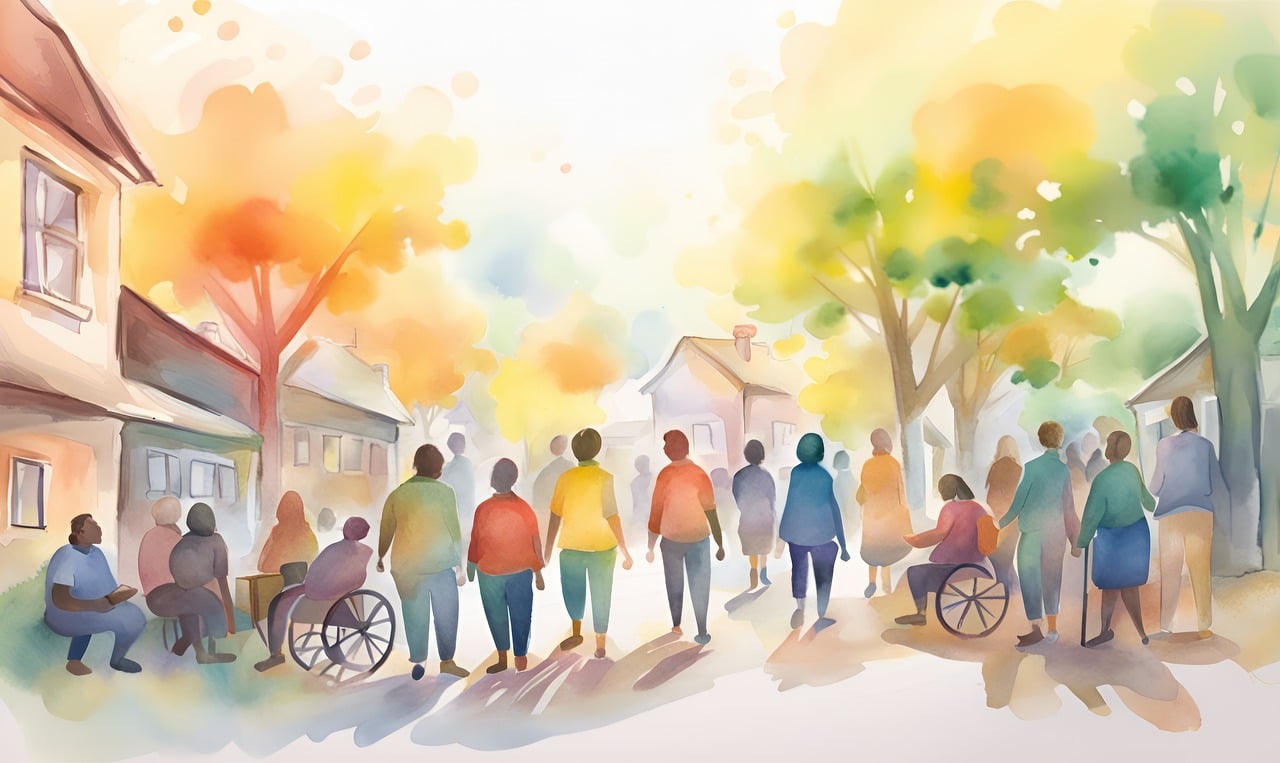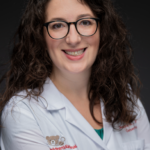Starting a new residency training program is often a daunting task. New pediatric residents (physicians in training) have often moved to a new location, and they are required to find a new apartment, new friends, and a new driver’s license all while learning the layout of a new hospital and how to use a new electronic health record. Most importantly, they are learning how to practice as newly trained doctors. It is an overwhelming transition for most. Many residents only have time to learn about their new neighborhoods briefly, if at all. They may only learn how to get from their apartment to the hospital and back.
For incoming residents at the Children’s National Hospital Pediatric Residency Program, CHAI intentionally created an orientation program in 2017, Moving Conversations, so new residents can learn about the city they are working in and the community they are working with. As suggested by the title, Moving Conversations, residents literally move throughout the city with a guided bus tour.
They start their morning at the hospital’s main campus where they learn from experts on how policy and economic investment shape where people live and where resources (such as grocery stores, public parks, employment opportunities, etc.) are located throughout DC. This year, Dr. Maranda Ward, Assistant Professor and Director of Equity in the Department of Clinical Research and Leadership in the GW School of Medicine and Health Sciences, emphasized how structural racism shapes neighborhoods to help residents recognize how the lack of opportunities in resources in a patient’s neighborhood is a byproduct of intentional policy. To avoid focusing exclusively on a deficit perspective, Dr. Ward also described the many community strengths of neighborhoods east of the Anacostia River.
The residents, Children’s National faculty, and staff from CHAI then loaded onto buses where they travel to THEARC, one of Children’s outpatient primary care sites in Southeast DC. As they moved through the city, faculty on the bus showed residents important historic sites (e.g., the Capitol Building) and important daily living sites (e.g., the only full-service grocery store in a neighborhood). They also saw and learned about organizations important to health, well-being, and policy, such as Bread for the City, Anacostia Arts Center, DC Department of Human Services, and the future site of the Cedar Hill Regional Medical Center.
THEARC is located in an historically under-resourced neighborhood with higher rates of poverty, which relates back to the themes of the introductory speaker. Upon arrival at the THEARC, residents toured the campus, which hosts not just medical services, but a variety of community organizations including a theater, a Boys and Girls Club, and public spaces for playing. Representatives from community organizations in the surrounding area and Children’s National faculty met residents at the THEARC to showcase how they are working with the community.
Residents then returned to the bus to travel to the northwest section of the city to see the Columbia Heights Health Center, one of the other Children’s National primary care sites that serves a high portion of the city’s Latinx population, including many recently arrived immigrants. The bus tour showed the many organizations, such as the Latin American Youth Center, that were specifically created to address the needs of newly arrived patients and their families.
The bus then wound its way back to the main hospital campus, where residents met in small groups with faculty members and CHAI staff to debrief about their experience. Residents were encouraged to think about how they will consider the patient’s lived experiences before and after they are in the office for a medical appointment.
The feedback from residents has been consistently positive since the inception of Moving Conversations, with quotes from this year including:
“It hit home the point made about how neighborhood characteristics really affects one’s lifespan.”
“…Opened my eyes on the crucial need for being advocates for the patients.”
“Seeing the clinics and all of the resources gave me hope. Hope that I can positively impact the kids of DC and hope I can use this structure to create future programs.”
Becoming invested and integrated in a community takes time. Moving Conversations lasts only a few hours, but it gives the new Children’s National pediatric residents a layout of the city and a context to understand their patients for the next three years of their training. Without a program like Moving Conversations, it would be difficult for new residents to create authentic family partnerships and to have perspective on the needs of families and the strengths of our local community. CHAI has used this experiential learning model for staff, faculty, and community partners throughout the hospital system. CHAI hopes to continue to model this kind of work for other training programs and other hospital systems to consider putting into practice at their hospitals.
Header image from Pixabay.









